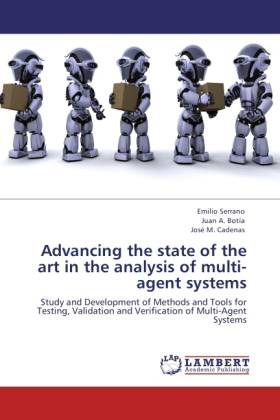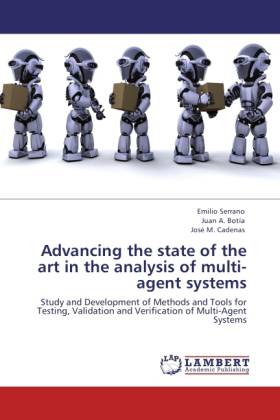
Je cadeautjes zeker op tijd in huis hebben voor de feestdagen? Kom langs in onze winkels en vind het perfecte geschenk!
- Afhalen na 1 uur in een winkel met voorraad
- Gratis thuislevering in België vanaf € 30
- Ruim aanbod met 7 miljoen producten
Je cadeautjes zeker op tijd in huis hebben voor de feestdagen? Kom langs in onze winkels en vind het perfecte geschenk!
- Afhalen na 1 uur in een winkel met voorraad
- Gratis thuislevering in België vanaf € 30
- Ruim aanbod met 7 miljoen producten
Zoeken
Advancing the state of the art in the analysis of multi-agent systems
Study and Development of Methods and Tools for Testing, Validation and Verification of Multi-Agent Systems
Emilio Serrano, Juan A. Botía, José M. Cadenas
Paperback | Engels
€ 77,95
+ 155 punten
Omschrijving
Computer software is finding its way into more life-critical applications every year. There are problems which can be difficult to be solved by classic monolithic software systems instead of by multi-agent systems (MASs). If analyzing traditional software is considerably complex, it is much more complex to analyze a MAS in which intelligent or emergent behaviors may appear. This book is presented as a significant contribution to the analysis of multi-agent systems or MASs. The presented work introduces the basis for the development of a forensic analysis infrastructure for MAS (i.e., an analysis process performed on previously recorded data of the system run), proposes the use of data mining techniques to discover not explicit knowledge in the logs derived from the forensic analysis, explains analysis techniques based on social network analysis, and provides a qualitative analysis on the basis of the semantically rich information provided by agent communication languages and interaction protocols.
Specificaties
Betrokkenen
- Auteur(s):
- Uitgeverij:
Inhoud
- Aantal bladzijden:
- 208
- Taal:
- Engels
Eigenschappen
- Productcode (EAN):
- 9783846543528
- Uitvoering:
- Paperback

Alleen bij Standaard Boekhandel
+ 155 punten op je klantenkaart van Standaard Boekhandel
Beoordelingen
We publiceren alleen reviews die voldoen aan de voorwaarden voor reviews. Bekijk onze voorwaarden voor reviews.









